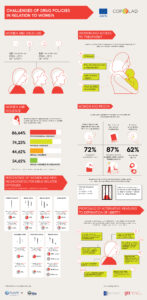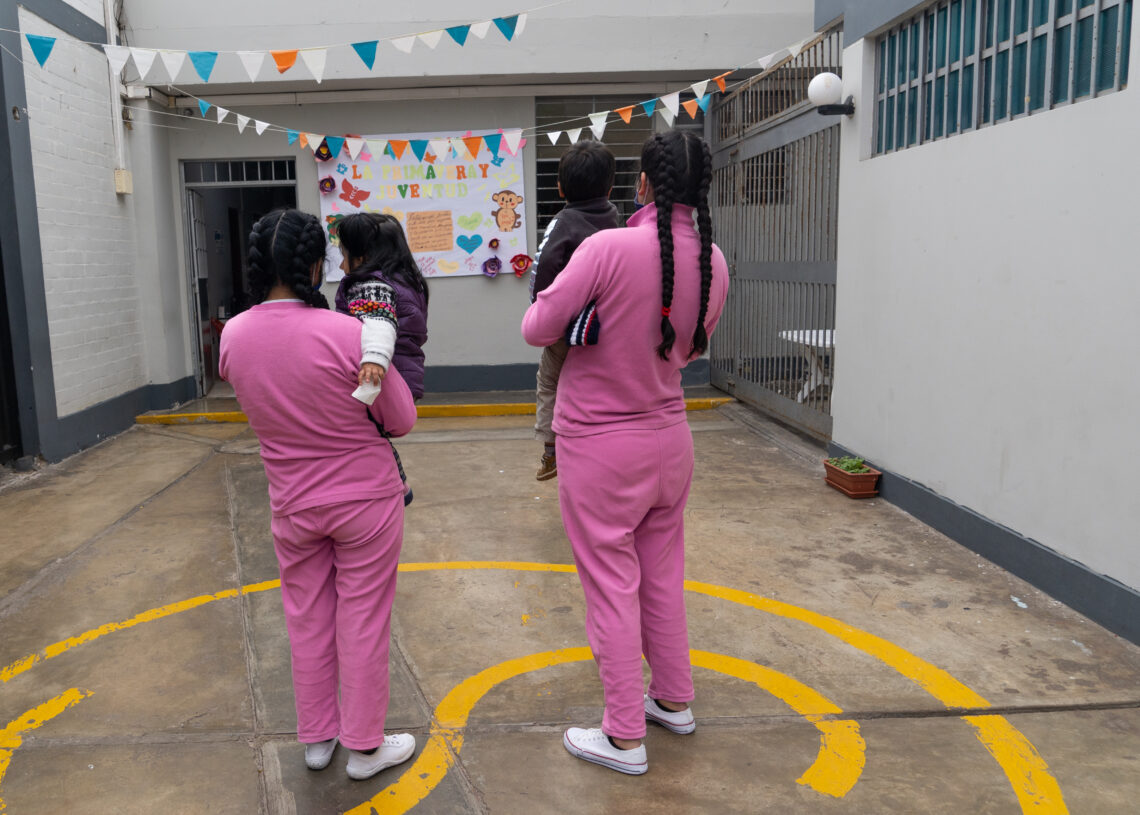According to a recent study funded by the European Commission, more than 85% of drug users have experienced violence. These figures are evidence of the neglect of women’s needs and rights in many public drug policies. While women make up, in global figures, one third of drug users, their access to treatment is often made difficult for gender-based reasons such as their role as carers, the lack of flexible timetables in treatment facilities or the existence of timetables adapted to women or the impossibility of attending with their children. It is often women who accompany their partners to treatment, but who accompanies women? Stigma is also a barrier to accessing treatment because the social perception of women who use drugs penalises women more than men.
Violence is present in all places and conditions, and it also occurs, to a greater extent (two to five times more) in women who use drugs. According to the Interleave project report, 86.64% have experienced physical violence, 74.23% physical violence. Sexual abuse is also a situation that unfortunately still occurs in 44.62% of female drug users, and even more seriously in more than 24% when they were children.
On the other side of the coin, with regard to women who participate in the illicit economy, violence is also reflected in the use of women’s bodies to transport drugs, without forgetting the role of women in the narco culture, which is only the tip of the iceberg of the feminicides suffered by women, especially in some countries in the region. Latin America and the Caribbean is home to the largest population of women imprisoned for drug offences, a shockingly high number compared to the imprisonment of men for the same causes. Most had access to less education, live in conditions of poverty and 72% are not charged with violent crimes. 87% of women have children or family members in their care and 62 per cent have no criminal record.
The incarceration of women has devastating consequences for their children and families. In a context of prison overcrowding, the European Cooperation Strategy on Drugs is committed to finding alternative solutions to imprisonment for minor offences. Specifically, the COPOLAD programme is initiating a line of work and guidance for Latin American and Caribbean countries in this aspect, where it will accompany those countries that wish to do so in the review of penal frameworks, the proportionality of offences and alternatives to imprisonment, as recommended by international conventions.
COPOLAD will reinforce in this third phase its gender focus by promoting in all its actions and specifically with the:
- Training in the incorporation of gender-differentiated indicators in the National Information Systems of the Drug Observatories.
- Incorporation of the gender perspective in the dialogue between the EU and CELAC countries on drug-related issues
- Improving the gender approach in law enforcement activities.
- Promotion of research on drug policies with emphasis on women’s problems and needs
- Promoting research on drug policies with an emphasis on women’s issues and needs.
- Support for public policies that promote the integration of women with addictions into the labour market.
- Design of virtual training modules to improve gender mainstreaming in public drug policies.
- Proposals for alternative measures to the deprivation of liberty of women in minor drug offences.







